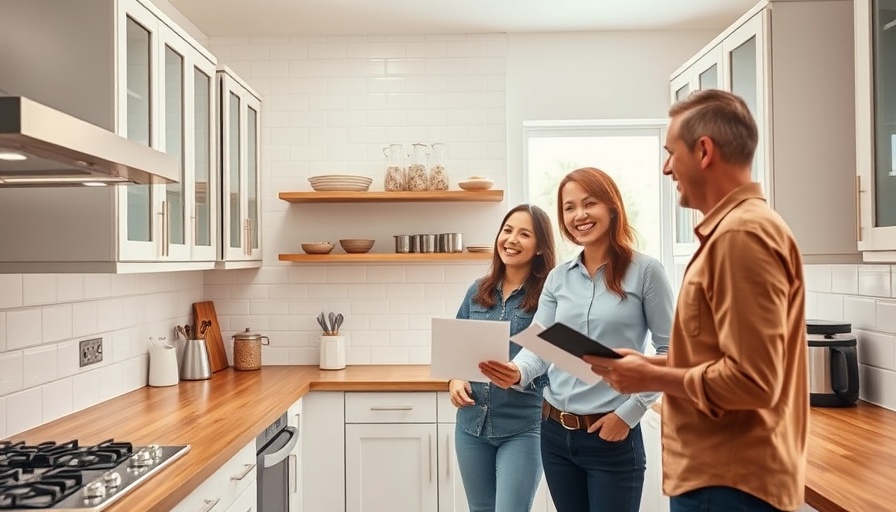
Weighing Your Home Options: New Construction vs. Existing Homes
The decision to purchase a home—especially when choosing between new construction homes and existing homes—can feel overwhelming. Many buyers, whether they are first-timers or seasoned veterans in the real estate market, face this dilemma. In this guide, we'll explore the advantages and disadvantages of each choice, ensuring a clear path for you whether you're in Albuquerque, NM, looking for that perfect new-build, or eyeing a charming vacation house in Hilton Head Island, SC.
The Bright Side of New Construction Homes
Buying a new construction home can offer numerous advantages:
- Modern Designs: New homes often boast contemporary layouts, including open floor plans and spacious kitchens, which cater to modern lifestyles.
- Energy Efficiency: Equipped with the latest technology such as energy-efficient HVAC systems and double-pane windows, new homes can reduce your utility bills significantly.
- Lower Maintenance Costs: Since everything is brand new, maintenance and repairs are often minimal for the first few years.
- Customization Options: If your house is still under construction, you may have input on design elements like cabinetry and flooring, making the home truly yours.
- Warranties and Incentives: Many builders provide warranties covering structural defects, which can offer peace of mind.
The Downside of New Construction Homes
However, the allure of new construction is not without its downsides:
- Higher Upfront Costs: Typically, these homes come with a premium price tag that can be a barrier for budget-conscious buyers.
- Delayed Move-In Dates: If the home is still being built, you may encounter delays influenced by various factors ranging from construction schedules to supply chain disruptions.
- Difficulty Visualizing Space: Potential homeowners often find it hard to picture themselves in a home that exists only on blueprints.
Addressing the Benefits of Existing Homes
On the other hand, existing homes come with their own set of benefits:
- Affordability: These homes usually have a lower initial cost compared to new builds, making homeownership more accessible.
- Immediate Move-In: If you find your dream home, the move-in process can be much quicker, helping you avoid prolonged waiting periods.
- Established Communities: Existing homes tend to be situated in neighborhoods that have established amenities and community features already in place.
- Variety of Designs: Existing homes offer a range of architectural styles and designs that cater to various tastes.
Overcoming Challenges: What Buyers Should Consider
Understanding these pros and cons is essential for making an informed decision in today's real estate market. Factors such as your personal budget, timeline, and willingness to take on repairs will ultimately determine the right path for you.
Making the Right Choice: Tips for Buyers
As you navigate through the real estate listings, remember these key tips:
- Consult with a Real Estate Agent: A knowledgeable realtor can assist you in weighing your options based on current market trends and individual needs.
- Evaluate Your Lifestyle Needs: Consider what you prioritize in a home. If customization and modern amenities are crucial, a new build might be the way to go.
- Be Mindful of Timing: If you're on a tight schedule, an existing home may be more advantageous due to quicker move-in times.
- Research Local Market Conditions: Understanding market values and trends in your desired area can help you make smarter decisions.
Conclusion: The Path Forward in Home Buying
Ultimately, whether you choose new construction or an existing home, the key is to ensure that your decision aligns with your individual needs and circumstances. For personalized assistance in navigating the home buying process and to gain access to the latest real estate news and listings, be sure to consult with reputable real estate companies.
As you embark on your home buying journey, remember to stay informed and consider all your options carefully. Happy house hunting!
 Add Row
Add Row  Add
Add 




Write A Comment